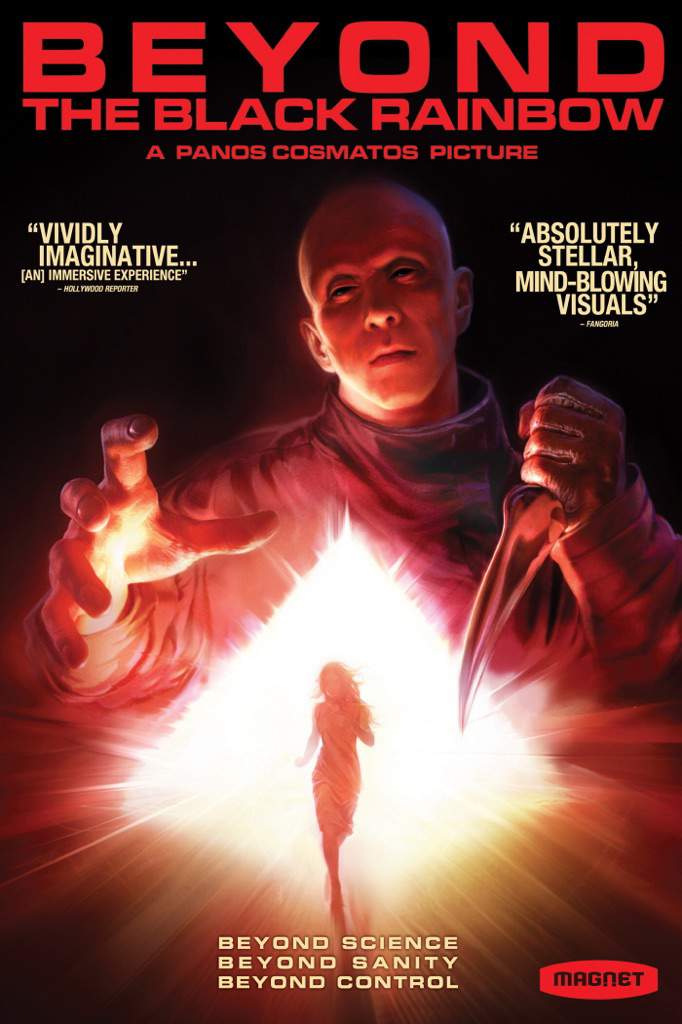

In the defense of Annihilation (2018), it’s not that it was a bad movie, there are just not a lot of people who understand or appreciate the classic Lovecraftian influences that make this movie such a success. Not only do they go through all of the stages of grief in a twenty-minute span, but they also cross over into the realm of acceptance within the insanity that they find themselves facing. In the end, the character’s realization of what is really going on is what sells this movie as a true gem in the realm of cosmic horror. It stands to reason though, that if you pay attention throughout the movie you’ll be on edge and most notably creeped out by the subtle external influences at work in this complex, comical, and downright terrifying film. If we discount the major hints that are dropped throughout this movie, the entire movie may end up shocking you once it reaches its finality. Perhaps its the stereotypical creepy gas station attendant, or the lack of accumulated dust on the relics in the cellar of the cabin, or perhaps it’s the pain-worshipping redneck zombies that dig their way out of the ground–this movie doesn’t walk or quack like a cosmic horror duck, at least not at first. The monster (alien?) is just the tip of the cosmic horror iceberg what the creature ultimately represents is the debilitating nature of what it means to have your entire worldview changed forever. Not to spoil anything but it is the main reason that we suggest watching this movie before the prequel, of the same name, that was released in 2011. This monster doesn’t behave in a manner that would suggest it’s a creature that belongs to our world, which leads us to believe it’s an alien. The bread-and-butter of the cosmic horror genre is typically that which cannot be seen, right? Well, John Carpenter gave us all a middle finger when he essentially slapped us in the face with a monster that we can not only see but one that we still can’t give a proper description of. The monster effects were considered state-of-the-art in 1982, it may seem like they would be outdated by now, but don’t be fooled, Rob Bottin continues to enthrall us with his ability to both elicit a sense of wonder and revulsion they also keep us in the dark just like Lovecraft himself thrived on being non-descriptive, choosing to encourage readers to envision their own, “indescribable horror.” We never see the monster in its true form, because it’s always shown either in the guise of one of the crew members or in its transformation to its new disguise. Fear of the unknown has many succumb to insanity and that’s exactly what happens with the best Lovecraftian literature.

This insignificance fuels our fears and results with the ultimate imperceptible terror, the unknown. These beings, creatures, or ancient powers don’t care about us or our existence–we are insignificant and immaterial to the grand scheme of things.

The realization of cosmic horror is that there are these unknown, inhuman, races of beings that have inexplicably existed since times before life on Earth could boast multicellular organisms. What we end up finding when we delve deeper into trying to understand such an intangible fear, is that the fear arises from within ourselves, our paranoia, insecurities, and the emotions that these things stir up that we are nowhere near prepared to deal with. Few movies have been fortunate enough to capture the existential dread that we get from the literary cosmic horror these precious few examples leave us wanting more. Since the cosmic horror subgenre doesn’t rely solely on jump scares, it’s difficult to really sink your teeth into what is truly so frightening about these kinds of stories. The sciences, each straining in its own direction, have hitherto harmed us little but some day the piecing together of dissociated knowledge will open up such terrifying vistas of reality, and of our frightful position therein, that we shall either go mad from the revelation or flee from the deadly light into the peace and safety of a new dark age. We live on a placid island of ignorance in the midst of black seas of infinity, and it was not meant that we should voyage far. The most merciful thing in the world, I think, is the inability of the human mind to correlate all its contents.


 0 kommentar(er)
0 kommentar(er)
